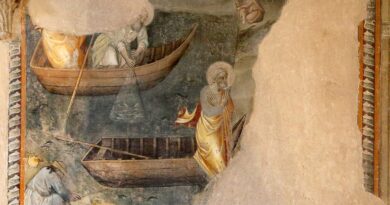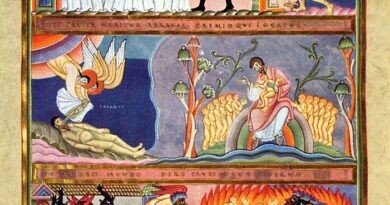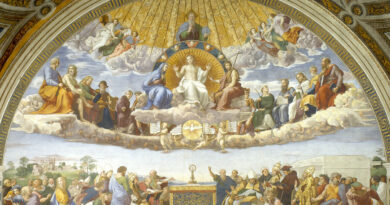Ist Sunday of Advent
Massimo Palombella
 Advent, as a period of preparation for the feast of Christmas, is witnessed in Gaul and Spain already towards the end of the 4th century and its duration tends to stabilise in accordance with that of Lent, i.e. six weeks.
Advent, as a period of preparation for the feast of Christmas, is witnessed in Gaul and Spain already towards the end of the 4th century and its duration tends to stabilise in accordance with that of Lent, i.e. six weeks.
An Advent of such a duration is attested in Rome towards the middle of the 6th century, until, with the liturgical reform promoted by Pope Gregory the Great at the turn of the 6th and 7th centuries, it was shortened to four weeks, and so it spread later throughout the Western Latin Church.
The Ambrosian Liturgy has preserved the primitive use of the six weeks of Advent, a time that begins on the Sunday immediately following 11 November (feast of St Martin) and ends with Christmas Eve.
While in the Roman Rite all four Sundays have a mournful, “penitential” character, and the third – the “Gaudete” Sunday – provides for rose-coloured vestments, in the Ambrosian Rite there is no similar Sunday, but on the last Sunday of Advent, the sixth, the vestments are white because it focuses on the misery of the Lord’s Incarnation and Mary’s divine Motherhood.
In both the Roman and Ambrosian Rites, Advent opens with the Antiphon “Ad te levavi animam meam” (an antiphon called “Introito” in the Roman Rite and “Ingressa” in the Ambrosian Rite) and both Sundays have an “eschatological” character and mark the beginning of the new Liturgical Year (significant in this regard is the letter “A” with which begins the antiphon that opens the Eucharistic Celebration in both 2 Rites).
Advent invites us to be in touch with our desires, our expectations, with what, consciously or unconsciously, moves our lives, really determines our choices. Our desires, our true needs, must be welcomed, accepted, loved and placed before the Lord so that He may purify, guide, educate what is our best strength, in order to live everything, lose nothing and taste what it means to “live in abundance”.
The entrance antiphon, the Introit of today’s celebration is taken from Psalm 24 (Ps 24:1-4) with the following text:
“Ad te levavi animam meam:
Deus meus, in te confido, non erubescam:
Neque irrideant me inimici mei:
Etenim universi qui te espectant non confundentur.”
(Unto you have I lifted up my soul.
O my God, I trust in you, let me not be put to shame;
do not allow my enemies to laugh at me;
for none of those who are awaiting you will be disappointed).
The attached music, in Gregorian Chant, is taken from the Gradual Triplex published in Solesmes in 1979. The interpretation is by the Cantori Gregoriani conducted by Fulvio Rampi. The musical track can be found on the CD “Adventus Domini” published by Edizioni Paoline in 1995 .
It is interesting to compare this antiphon of the Roman Rite with the Ambrosian Rite, where the same text is placed in the “Ingressa” of the first of the six Sundays of Advent.
As far as the Ambrosian Rite is concerned, the attached music, in Ambrosian chant, is taken from the Antiphonale Missarum Iuxta Ritum Sanctæ Ecclesiæ Mediolanensis, published in Rome in 1935. The interpretation is by the Musical Chapel of the Duomo of Milan at the Celebration on the first Sunday of Advent on 13 November 2022 (at minute 2.33).
A blessed Sunday and heartfelt greetings.


